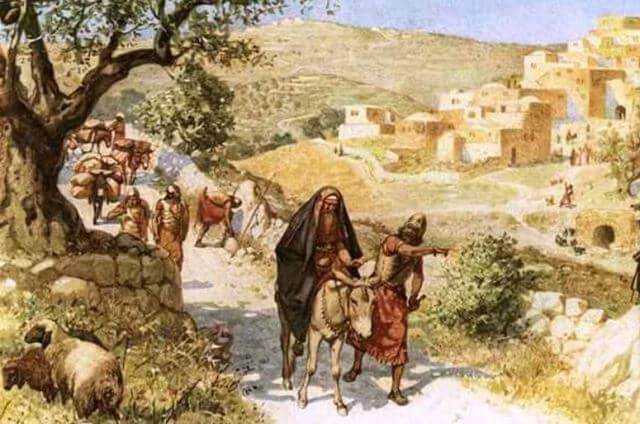
The second and third chapters of Tehillim both speak of enemies and foes, but of a different type. The second chapter derides external challenges, nations that foolishly conspire against God and Israel. The third chapter, on the other hand, refers to a more personal adversary:
“A psalm of David, when he fled from his son Absalom. O God, my tormentors are so numerous; many rise up against me.” (Psalms 3:1-2)
Rabbi Shimon bar Yochai contrasted these two psalms, noting their different tones. In chapter two, David belittles the conspiracies of the nations: “Why do the nations convene, and kingdoms plot vain matters? ... He Who dwells in heaven laughs; the Eternal mocks them” (Psalms 2:1-4).
The rebellion of his own son, however, was a far more serious matter. David cried out, “O God, my tormentors are so numerous!”
Rabbi Shimon taught:
“From here we see that a bad upbringing [a rebellious child] in one’s house is worse than the war of Gog and Magog” (Berachot 7b).
Are rebellious children really worse than the cataclysmic wars of the End of Days?
The Danger from Within
Rabbi Shimon is teaching an important truth: our most dangerous adversary is the enemy within. And this principle, Rav Kook explained, applies to both the individual and the nation.
A person may suffer from external opponents: hostile enemies, or adverse conditions. But they are less dangerous than our internal adversaries — namely, self-destructive behaviors, unrestrained cravings that can destroy body and soul. It is hard to protect ourselves from these inner vices. They require greater vigilance due to their proximity and constant presence. As the author of the Chovot HaLevavot cautioned, “The enemy lies between our ribs!”
Rabbi Shimon’s lesson is equally true for the Jewish people. Worse than the persecution from our external enemies is the destructive potential of our ‘homegrown’ heretical sects and slanderers, evil shoots that sprouted from within the people. The greatest troubles that befell the Jewish people were not from enemies from without, such as Amalek, but from the pernicious influence of groups from within, like the Erev Rav, the mixed multitudes of slaves who joined Israel during the exodus from Egypt.
The Talmudic sages found it necessary to compose a special prayer, Birkat HaMinim — the only negative prayer in the entire liturgy — to counter the enmity of heretics and slanderers. Our internal opponents may be numerically smaller than our external foes, but they have far greater capacity to inflict damage and distance the Jewish people from their Father in heaven.
For this reason, the redemption of the Jewish people requires that the nation first be purified of its internal adversaries: “I will purify you of your dross. Only then, “You will be called the City of Righteousness, the Faithful City” (Isaiah 1:25-26).
(Adapted from Ein Eyah vol. I, p. 35)
Illustration image: ‘David fleeing from Jerusalem is cursed by Shimei’ (William Hole, 1846)





